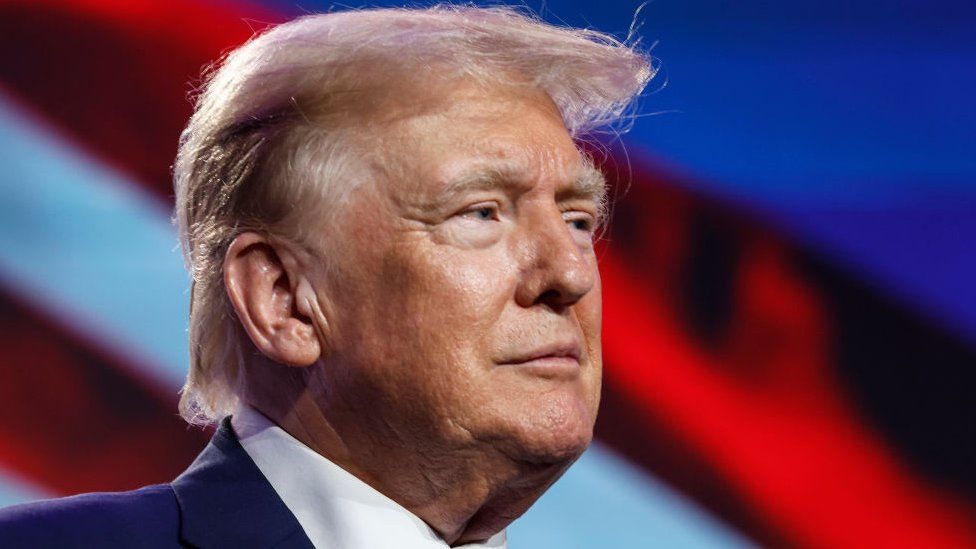-

-
-
Loading

Loading

The Supreme Court's recent decision not to immediately rule on whether Donald Trump can be prosecuted for election-subversion charges could potentially delay his trial, according to former prosecutors. However, these experts also warn that this strategy of filing repeated challenges may ultimately backfire on the former president, particularly in terms of the timing for his 2024 White House election campaign. On Friday, the Supreme Court declined to rule on whether Trump has immunity from prosecution in this case, rejecting special counsel Jack Smith's request for an expedited review. The justices did not provide an explanation for their decision. This ruling is considered a significant setback to Smith's case against Trump. It remains uncertain how long the trial may be delayed or if it will be pushed beyond the 2024 election. Trump is currently the leading Republican contender for a rematch against President Joe Biden in November. The special counsel indicted Trump in August for allegedly conspiring to overturn the results of the previous election, leading up to the US Capitol riot on January 6, 2021. As a result of the Supreme Court's ruling, the US Court of Appeals for the DC Circuit will have to hear the case first, with a potential later ruling from the Supreme Court still expected. Smith argued that the appeals process could prolong the trial's start, currently slated for March 4. Meanwhile, the judge presiding over the case, Tanya Chutkan, has paused the proceedings as Trump's legal team pursues appeals. Trump has consistently asserted immunity from prosecution, claiming he was acting in an official capacity during the riot. Former federal prosecutors Gene Rossi and Kevin McMunigal believe the Supreme Court's decision is a setback for the special counsel's scheduling timeline, potentially leading to a trial delay until late July or early August. This would coincide with the Republican National Convention, posing challenges for Trump's campaign. Another former federal prosecutor, Gregory Wallance, sees the decision as a win for Trump, but it remains uncertain whether the appeal of the immunity ruling will delay the trial until after the election. The expedited process sought by Smith is not unprecedented, as the Supreme Court has fast-tracked cases in the past. However, 19 cases were expedited in the last four years. Overall, legal experts believe Trump's delay strategy could complicate efforts to begin the trial in early March. Arguments in the case are set to be heard in the DC Circuit Court on January 9. Aside from this election-subversion indictment, Trump also faces two other criminal cases—one involving classified papers and another related to hush money.